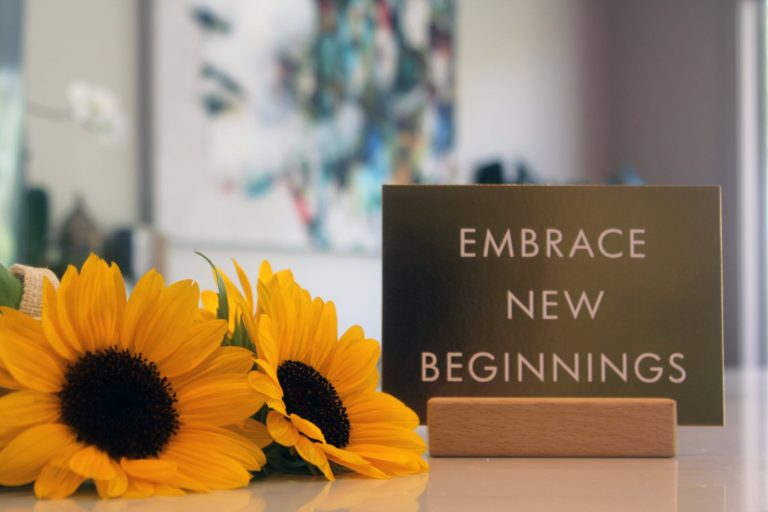As part of my studies and research recently I was reflecting on counselling and psychotherapy both in the counselling room and in the training room. I was reading a book by Dr. Sudhir Kakar who is a psychoanalyst and is from India. He explores the many differences and similarities in Eastern and Western cultures and the multitude of ways of healing and treatments for emotional and mental distress using both traditional and modern methods. The following passages impacted on me.
“It is generally forgotten, for instance, that not too long ago, the ministrations of the priest on the deathbed and the doctor on the sickbed were both termed clinical. However, with the irresistible march of scientific naturalism over the last one hundred years, the domain of the clinical has been finally and firmly usurped by the doctor, and the priest forced into exile.” I am interested in the area of spirituality and counselling.
The above triggered the question again –Is counselling a vocation or a set of techniques used by a clinician? This question of course continues to be discussed by many within the field and by the various orientations and approaches that help ease psychological distress. I am also remembering that “psyche” refers to the soul. Most agree that clients are unique and so whatever aids and works for each individual is what is important.
I am drawn back to another passage from Kakar “The whole weight of the community’s religion, myths and history enters sacred therapy as the therapist proceeds to mobilize strong psychic energies inside and outside the patient which are no longer available in modern society. How closely do such views depict reality and how much are they an expression of a Western mourning at the loss of the Sacred? How do sacred therapies really work? What are the major differences between sacred and profane psychotherapies?”
These questions could be asked of every trainee counsellor and on every personal development course. It provides fodder for discussion, critical enquiry and opens the mind and heart to other views and ways. It struck me while writing this article that it is the attitude with which therapy is facilitated that makes it sacred. I almost wrote “with which therapy is done” but of course I don’t believe that I “do” therapy with clients, which would give the impression that I am the expert on their lives. You as my client are a unique creation so why would I have your answers?
The therapist who is working at the level of sacredness is humble in the presence of this unique being with a story, a life and history that is uniquely theirs. The client needs someone who is human, caring, compassionate, self aware and trained to be able to meet them in their distress without burdening or contaminating the space. Gaining a clients trust has a semblance of gaining the trust of a child in some ways. Why should this sound strange when often it is the inner child, the hurt child that is before us in adult form. The responsibility it carries may at times frighten us and take us away to safer levels of interaction.
The trust required for a safe therapeutic relationship where authentic relating at a deep level can take place is a process of loving invitation by a therapist who has engaged with their own Hero/Heroine Journey. (Joseph Campbell wrote about the Hero’s Journey) This is a therapist who has been initiated into their journey of self discovery, a person of courage who has crossed the threshold and embraced the unknown territory of the “other world” and has built relationships with their shadow aspects, survived the “dark night of the soul”, found their resources and are living examples of their truth. This is no mean feat and is not for the fainthearted. This is the work of the therapist who wishes to offer and hold sacred space, where a profound healing experience may transpire.
The acceptance, congruence and love required to facilitate this kind of sacred climate emerges from a deep place of compassion, kindness and respect for another’s history, choices, pace, and journey. This level of understanding for human strengths and limitations is a mirror of the therapist’s self acceptance and reflection on their previous and continuous personal and professional development. This asks further questions as to how many accredited counsellors/psychotherapists/supervisors are in personal therapy or engage in some form of personal growth activity to deepen their self knowledge and self awareness.
Because I am passionate I need to be mindful of other views and perspectives and be open to further learning. In the counselling training room I remind myself that I do not wish to unduly influence trainee’s perspectives. I prefer to ask questions such as Kakar’s, this encourages and allows for lively discussion, meaning making and questioning, and trainees find their own styles and approaches. I love this work of being a midwife and I love our learners who trust our college. It is a privilege to accompany them and see them grow personally and professionally.
Back to Kakar “There are many in the West today who regret the disappearance of the sacred from the healing sciences and its removal generally from the world of everyday life. As far as psychotherapy is concerned, these people feel that a psychotherapist in a traditional culture may be greatly aided by the continuing presence of the sacred in his society.” I can only speak for myself, in my awareness, today.
The sacred in the counselling room for me means that I am dedicating the next hour to you, to your issues and I am reverently present to all of you, to all aspects of you as you journey towards wholeness. I endeavour to create a sacred space that has boundaries, where I am sincere, and open to creative inner and outer expression, some of which we may not comprehend. I am here to trust your innate and organic urge and to support your struggle towards integration. I can only be present to you if I am present to myself. This requires self awareness and self care, both are professional requirements in my code of ethics.
In our daily lives are we losing a sense of the sacred? By being mindful and aware we get many opportunities to recall the sacred. Being grateful, expressing love, sorrow, fear encourages holy interactions. Loving and making love to the world, our work, our people, and our lovers brings us in contact with a reverence and awe for a force beyond measure. When my intention is to love you, then if I hurt you I am sad and unhappy too. Through the ages the ancients have appreciated the interconnectedness of all creation. As a society it seems sometimes we have become disconnected and alienated from the earth, nature, each other and ourselves. We try to be normal as others prescribe until it becomes the unquestioning norm decreed by a group who may be closed to other realities and possibilities.
As I write I am seeking to remain open to alternative norms and it’s not so easy. As a therapist I am required to be open to other norms e.g. belief systems, sexual behaviours, cultures and traditions. Every day I see small children having their clothes changed two, three times a day because they “are dirty”, they are not allowed splash in puddles, and fear is ingrained at an early age. I sat on the rocks in Doolin, Co. Clare yesterday. A young couple with their children who were on holiday were standing nearby.
They spoke to and requested their children be safe. They didn’t look at or speak to each other as adults; they were busy texting on their phones. The passengers from the Happy Hooker and two other boats were disembarking at the pier close by. The area was full of people enjoying the beautiful day and a dolphin was swimming with a few swimmers. Yet this couple were interacting with someone who was not here, it seemed that neither of them were here either.
I am not judging them and I know nothing about them, but I pondered who could be more important than the person who is here with you now? I have asked the same question when out for dinner and the couple at the next table are both on their phones, there are four people at the table, albeit two are invisible, is there a loss?. There is a loss of sacred sharing, of time and presence, of genuine communication and appreciation of another. At these times I am reminded to be present to the person I am with and to what I am doing in this moment, to mind my own business!
I wonder about addictive behaviours mine and others, which I see as creative distractions and defences to connecting and owning our inner and outer pain, distress and power. I think about them in relation to Kakar’s view “In most parts of the world, the belief in possession by spirits and demons has been historically the dominant theory of illness and especially of conditions that we call mental illness”. I wonder what modern day “spirits and demons” are possessing us and disturbing our mental health and well being? This is another question for further discussion and brings me to a final quote by Kakar which takes me back to the beginning of this article.
“The real line of cleavage, cutting across cultures and historical eras, seems to be between those whose ideological orientation is more towards the biomedical paradigm of illness, who strictly insist on empiricism and rational therapeutics and whose self image is close to that of a technician, and others whose paradigm of illness is metaphysical, psychological or social, who accord a greater recognition to a rationality in their therapeutics, who see themselves (and are seen by others) as nearer to the priests”.
Nearly twenty years ago, counselling and psychotherapy training attracted me not because I felt holy, in fact it’s laughable, I felt the opposite at the time, and I was in need of connecting to the sacred within me. Through a wonderful therapist I eventually made this connection. As a child I wanted to be a teacher or/and a preacher, a healer, someone who made a difference (clever, insightful child!). I became and continue becoming a therapist and teacher out of a desire to serve, a wish to accompany and a willingness to love another towards holistic well being.
This is a philosophy, a vision, an ethos and like all ideas it is open to constant change, difficult to apply and embody. These are some of the core questions and challenges that face all of us therapists, training colleges and our accrediting professional bodies and especially the statuary regulatory bodies of the future.My hope is that there will be openness to, respect for, and equal support for all perspectives of helping and healing.
The client is the jewel, the focus and the reason for everything else that happens in the counselling and psychotherapy arena. The support scaffolding around this precious being comprises of therapists, supervisors, professional bodies, future regulatory body and training colleges all of which share the responsibility of witnessing, shielding, safeguarding, and protecting our clients, our psychological therapists, our wonderful profession of counselling and psychotherapy.
– Christine Moran, Academic Director at ICPPD
(First Published Spring 2015, IACP Journal)
References:
Kakar, Dr. Sudhir. (1998). Shamans, Mystics and Doctors: Oxford University Press
Campbell, J. (1970). The Hero with a Thousand Faces: Cleveland: World Publishing








